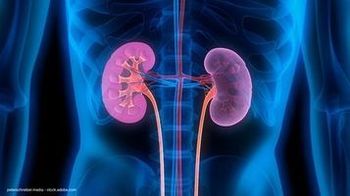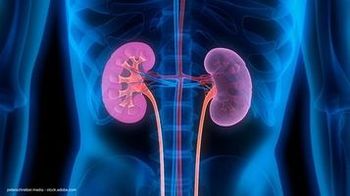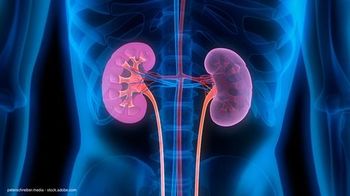
Dutasteride data show reduction in PCa risk; editorial disputes clinical relevance
Recently published study results indicate that dutasteride (Avodart) reduces the risk of prostate cancer in high-risk men, but publication of the results and an accompanying editorial may reignite the debate over whether 5-alpha-reductase inhibitors promote the growth of high-grade tumors.
Recently published study results indicate that dutasteride (Avodart) reduces the risk of prostate cancer in high-risk men, but publication of the results and an accompanying editorial may reignite the debate over whether 5-alpha-reductase inhibitors promote the growth of high-grade tumors.
The 4-year Reduction by Dutasteride of Prostate Cancer Events (REDUCE) study, which was published in the New England Journal of Medicine (2010; 362:1192-202), is similar to the Prostate Cancer Prevention Trial (PCPT), in which finasteride (Proscar), was found to lower overall prostate cancer risk, but with an increased incidence of aggressive tumors detected in men taking it.
In the REDUCE study, 659 men (19.9%) taking dutasteride were diagnosed with prostate cancer, compared with 858 men (25.1%) taking a placebo. Thus, dutasteride cut cancer risk 23%, about the same as in the PCPT.
The REDUCE authors, led by Gerald L. Andriole, MD, of Washington University, St. Louis, found no significant increase in aggressive, high-grade tumors (defined as a Gleason score 7-10) among men who took dutasteride over 4 years. There were 220 men (6.7%) on dutasteride with aggressive, high-grade tumors, compared with 233 men (6.8%) on placebo. However, the researchers noted a disparity in the most aggressive tumors (Gleason 8-10) among men taking dutasteride in years 3 and 4 of the study: 12 such tumors were detected in the dutasteride group versus one in the placebo group.
The study was designed so that men were withdrawn after they had a positive biopsy.
"The most likely explanation for the study’s results is that dutasteride is keeping tumors small or even shrinking them to the point that they are unlikely to be detected by a biopsy," Dr. Andriole said.
In an accompanying editorial (N Engl J Med 2010; 362:1237-8), Patrick C. Walsh, MD, of Johns Hopkins Medical Institutions, Baltimore, questioned the clinical relevance of the data.
"Dutasteride and finasteride do not prevent prostate cancer, but merely temporarily shrink tumors that have a low potential for being lethal... Furthermore, the use of these drugs for prevention may be somewhat risky," Dr. Walsh wrote.
"Because PSA levels are suppressed, men may have a false sense of security. If prostate cancer ever develops, the diagnosis may be delayed until they have a high-grade disease that may be difficult to cure."
Dr. Andriole has a financial or other relationship with GlaxoSmithKline, which funded the REDUCE study.
In related news, GlaxoSmithKline recently announced that it has re-submitted to the FDA the supplemental new drug application for dutasteride for prostate cancer risk reduction among men at increased risk of developing the disease.
Newsletter
Stay current with the latest urology news and practice-changing insights — sign up now for the essential updates every urologist needs.





